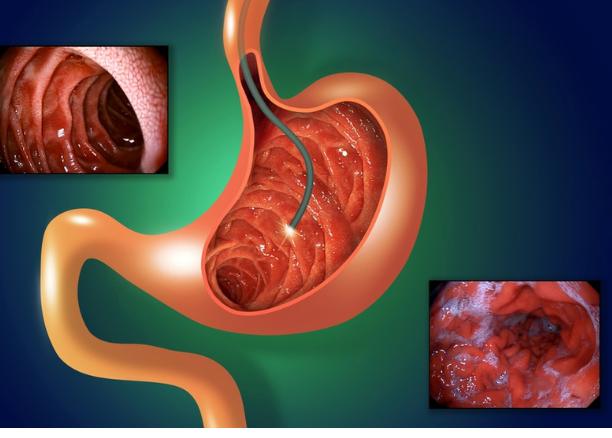Upper gastrointestinal bleeding
Upper gastrointestinal bleeding is acute or chronic bleeding from the upper parts of the digestive tract, namely the esophagus, stomach, and duodenum. Causes The most common causes are peptic ulcer, gastric and esophageal varices, and malignant tumors of the stomach, esophagus, and duodenum. Rarer causes include esophagitis, angiodysplasia, Dieulafoy ulcer (dilated submucosal vessel), and Mallory-Weiss syndrome (elongated mucosal erosion in the lower esophagus). Peptic ulcers are usually caused by Helicobacter pylori infection or by
Abdominal Abscess
Abdominal abscess continues to be an important and serious problem in surgical practice. Appropriate treatment is often delayed because of the obscure nature of many conditions, resulting in abscess formation and making diagnosis and localization difficult. Associated pathophysiologic effects may become life-threatening or lead to extended periods of morbidity with prolonged hospitalization. Delayed diagnosis and treatment can also lead to increased mortality; therefore, the economic impact of delaying treatment is







